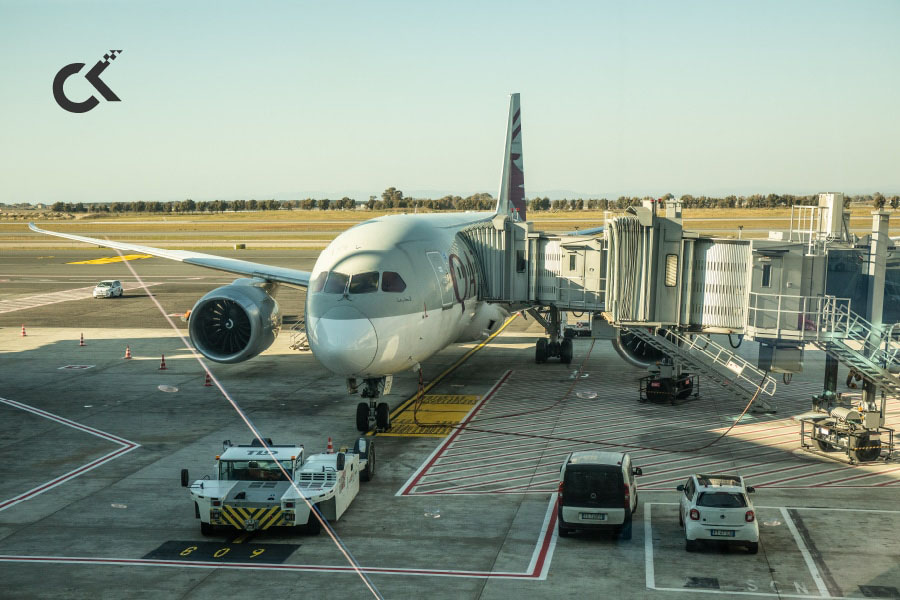The year 2018 saw the start of the airline sector boom in Indonesia. From January 2018, Indonesia’s Transportation Ministry allowed the opening of 83 new flight routes for commercial civil flights, consisting of 58 domestic routes and 25 international routes. This not only opened up huge demand and opportunities, but also challenges to handle the increased capacity requirements to handle the boom.
One company at the nexus of airport facilities management was Angkasa Pura Supports (APS). Set up in 2012, APS is a PT Angkasa Pura I (Persero) subsidiary and provides comprehensive and integrated airport facility management services that uphold international standards. It supports 15 major airports throughout eastern Indonesia and offers similar services for commercial and public properties.
“Through its system supply, services and tools, APS offers the best services for passengers or airport visitors in Indonesia,” said Indra S Mara, APS’s Vice President for ICT. “APS has more than 14.000 employees with relevant certification and operates in 21 service points throughout Indonesian cities. Our vision was to become a world-class company with integrated IT-based services in the aviation industry.”
The challenge: Agility to match business growth
Since 2014, APS has been a member of the ISSA (International Sanitary Supply Association). In 2015, APS expanded its services from middle Indonesia to include East Indonesia through 21 service points.
“After three years and on-premise management, we realized we lacked the agility when it came to business initiatives,” said Roy Liston, APS’s Infrastructure and Business Support Manager. “A stable connectivity was vital for us to be able to deploy scalable infrastructure for web-based applications, at the same time catering to peak period demand while reducing costs and increasing security.”
APS sought an MSP (managed services partner) to help them with logistics coordination, execution and controlling costs. After going through a dozen presentations by various vendors, the company settled on the GCP (Google Cloud Platform), Google BigQuery for analytics, and UI (Unified Analytics) dashboards for real-time actionable management. Who would implement this? Google’s prime solution partner, Cloud Kinetics.
The solution: Migration to GCP with proactive monitoring
“We needed a GCP partner who could develop an organized plan that best suited our business. Not only that, we needed a partner that knew to make sure migration was smooth and could help us fully utilize the service offered by GCP,” Roy Liston said. “We chose Cloud Kinetics because they’re a premier partner of GCP and a certified company specializing in GCP infrastructure and migration. We needed a business and technology partner who could integrate backend services seamlessly on the cloud without disrupting our ongoing ICT functions. It was a tall order, but Cloud Kinetics ticked all the boxes.”
Sandy Kosasih, Chief Corporate Officer at Cloud Kinetics, points out how they implemented up-to-date migration practices and the best cloud architecture designs to achieve efficiency, resilience and scalability. “This helped seamlessly migrate nearly 100 workloads,” he said. “APS can now leverage on Google BigQuery Services, designed to make data more productive, agile, elastic and compatible with Google Cloud. APS was able to make data available in real-time while running complex analysis queries in seconds and scaling seamlessly by taking advantage of on-demand pricing.”
Stefhanie Sendjaya, Cloud Kinetics Account Manager for APS, said that Cloud Kinetics “also rolled out security managed services through 24/7 proactive monitoring and reporting. This assisted APS in dealing with external attacks and keeping the customer environment more secure.”
The Cloud Kinetics team proposed a scalable solution running on GCP for infra provisioning, app monitoring, network availability, and security incidents tracking and mitigation. GCP had the three core services – IaaS (infrastructure as a service), PaaS (platform as a service), and serverless computing environment.
Cloud Kinetics provided 24/7 support for maintenance and proactive monitoring necessary for operations and analytics and security layers for continuous improvement. The benefits were remarkable.
The outcome: Lower capital & maintenance costs & 50% faster processes
“We managed to significantly lower our up-front capital costs and successfully reduced 25 per cent of monthly maintenance costs, thanks to Cloud Kinetics,” Indra S Mara said. “The time to set up, configure and implement was just one month. There has also been a great improvement in customer data analytics, with external users benefiting from 50 per cent faster processes and a wider range of insights on the data gathered throughout.”
“Cloud Kinetics is the top-tier MSP (managed services provider) on the GCP and an enterprise integration partner on VMware, NetApp, Dhruva, Cohesity, ServiceNow,” said Ted A, Cloud Kinetics’ Chief Revenue Officer. “Cloud Kinetics has operations in Indonesia, Singapore, Malaysia, India, Vietnam, Thailand, Europe, and the US to help companies migrate to a hybrid cloud.”
Indonesia is becoming a hot spot for global tech companies keen to get into one of Asia’s fastest-growing data markets, Nikkei Asia reported on July 8, 2020. It’s where e-commerce and food delivery services are rapidly expanding due to the pandemic.
The trend toward data localization is also drawing the tech titans to the world’s fourth most populous country. “Indonesia is full of opportunity,” Sundar Pichai, CEO of Google parent Alphabet, said during Google Cloud’s virtual launching ceremony in Jakarta on June 24, 2021. “It is one of Southeast Asia’s most creative, dynamic, and entrepreneurial countries with more than 150 million Internet users.”




